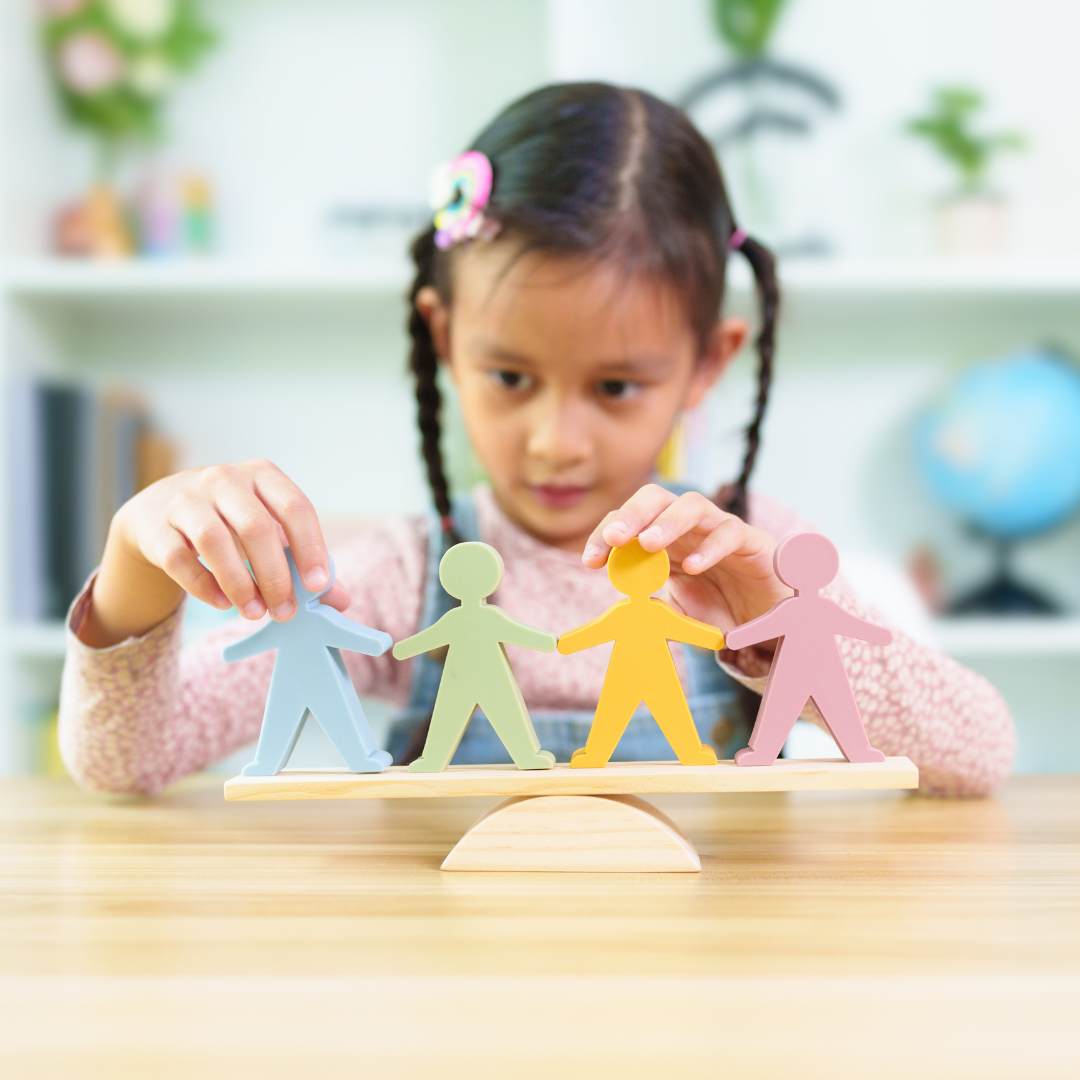If your child will be starting school in 2026, you may already be thinking about what will help them thrive in the classroom.
Whilst many parents focus on recognising letters or counting, research shows that strong communication skills are one of the biggest predictors of early school success. Children who can listen, understand, and express themselves clearly often find it easier to follow lessons, build friendships, and feel confident in their new environment.
The good news?
You don’t need to wait until the first day of school to work on these skills and you don’t need to turn your home into a classroom to do it. Many of the most important communication abilities can be built through everyday play and conversation.
Here are five key communication skills to start supporting now, so your child steps into Prep feeling confident and ready to learn.
1. Listening and Following Instructions
In a busy classroom, children need to follow directions from their teacher, sometimes while distractions are happening around them. Strong listening skills help them stay on track, complete tasks, and keep up with group activities.
How to support this at home:
– Play games like “Simon Says,” “Follow the Leader,” or “Treasure Hunt” where your child follows one- to three-step instructions.
– Use sequencing in everyday routines: “First put on your shoes, then get your hat, then we’ll go outside.”
– Praise good listening: “I love how you waited until I finished speaking before you started.”
2. Sharing and Turn-Taking in Conversation
Friendship-building in the playground and learning in the classroom both rely on being able to take turns speaking and listening. These social communication skills also help children show respect to others and work as part of a team.
How to support this at home:
– Take turns in storytelling: “I’ll say one sentence, then it’s your turn.”
– Use family mealtimes to practise group conversation, encouraging each person to ask and answer questions.
– Model patience when it’s your child’s turn to speak, give them the space to finish their thought before jumping in.
3. Vocabulary Growth
A rich vocabulary helps children understand instructions, follow stories, and share their own ideas clearly. It also supports early literacy, children who know more words often find reading and writing easier to learn.
How to support this at home:
– Read a wide variety of books together, fiction, non-fiction, rhymes, and even recipe books.
– Introduce new words in context: “This flower is called a daisy. The petals are white, and the middle is yellow.”
– Encourage curiosity by answering “what” and “why” questions with short explanations, then inviting your child to ask more.
4. Clear Speech
Being able to speak clearly enough for teachers and peers to understand makes school interactions much smoother. If your child is often misunderstood, they may feel frustrated or avoid speaking up.
How to support this at home:
– Model correct pronunciation naturally: e.g., if your child says “wion” for “lion,” you might respond, “Yes, it’s a lion!”).
– Avoid over-correcting, keep practice positive and pressure-free.
– If you’re concerned about persistent speech sound errors, consider an assessment with a Speech Pathologist well before school starts, so there’s time for support if needed.
5. Asking Questions and Expressing Ideas
Confident learners aren’t afraid to ask for help or share their thoughts. Encouraging your child to speak up when they don’t understand something helps build independence and problem-solving skills.
How to support this at home:
– Model the phrases that you would like your child to use when requesting help. For example, if your child expresses frustration, say ‘Can you help me please, Mum?’ so that your child can copy and practise using this phrase.
– Give your child opportunities to explain how they did something, like building with blocks or drawing a picture.
– Encourage your child to specify what they need help with. For example, ‘I need help to find my blue hat’ or ‘I need help to glue this piece of paper’.
Every child develops communication skills at their own pace. The goal is to give them a strong foundation for learning, making friends, and feeling confident in a new environment.
By weaving these skills into play, conversation, and everyday routines, you’re preparing your child for much more than just the classroom, you’re helping them navigate the wider world.
At Box Hill Speech Pathology, we work with families to create fun, practical activities that build communication skills in ways that fit naturally into your child’s day. If you’d like advice tailored to your child’s needs, we’d be happy to chat. Contact the clinic today to book a consultation or assessment.

